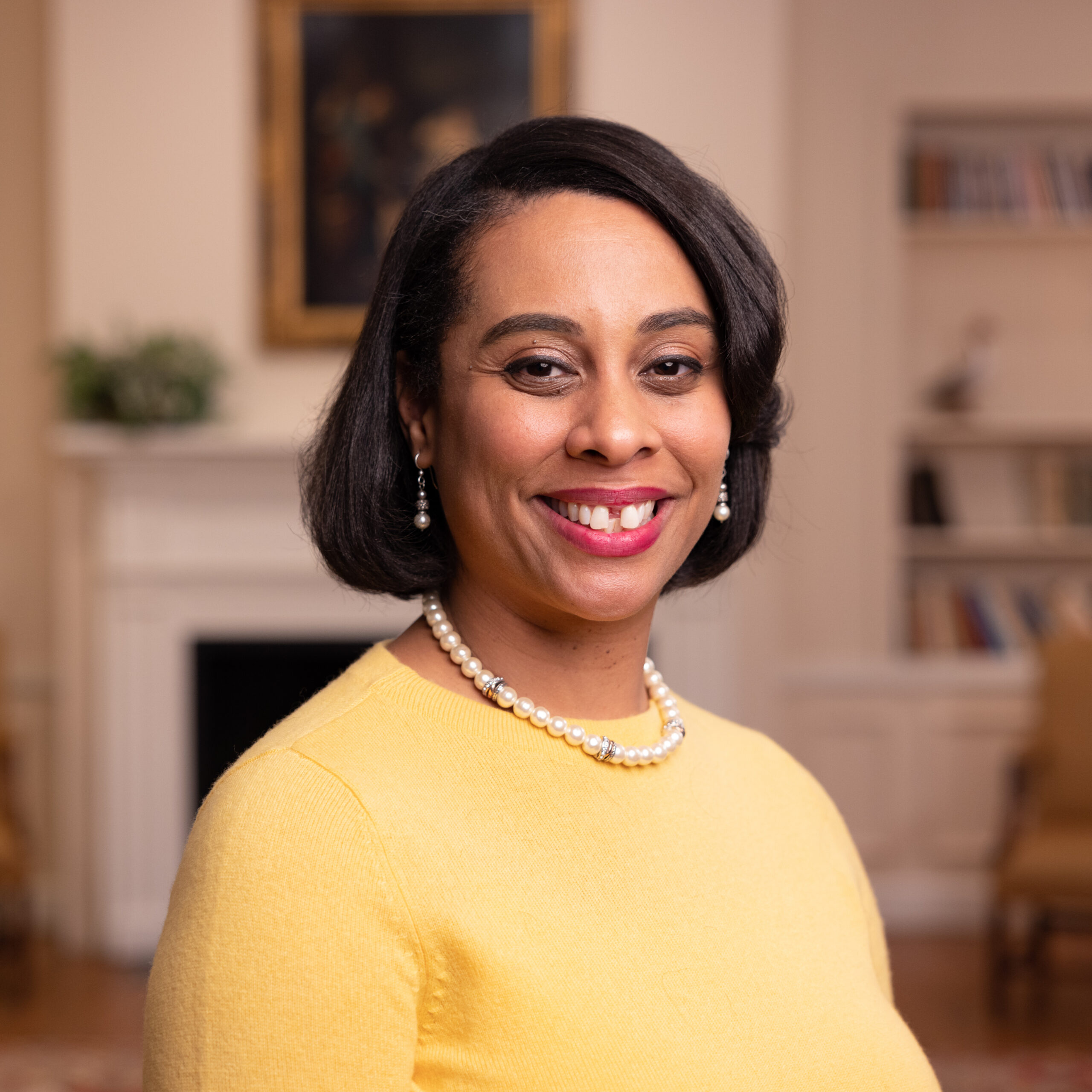Celebrating Dr. Keri Day as Full Professor of Constructive Theology and African American Religion
May 22, 2023 | Faculty, Featured, Public, Releases & Statements

As Dr. Keri Day becomes the first Black woman in Princeton Theological Seminary’s history promoted to full professor, she can’t help but think of her grandmother, Rose.
It was Rose Day who first spotted the leader inside her beloved granddaughter. A missionary who led in her community and her church, Rose Day was a role model for her granddaughter, proving that a black woman could lead, and have a voice and impact in her own community — and beyond.
She would not be surprised that her granddaughter has been promoted to full professor of Constructive Theology and African American Religion, or that Day is the first Black woman to chair the Department of Theology.
“She has been the centerpiece of who I am and where I am today,” says Day, whose daughter Ariella Rose is her grandmother’s namesake.
As Day ponders her historic new role, she says she feels like celebrating – and lamenting.
“I celebrate because I have been genuinely, genuinely supported and celebrated on the institutional level,” she says. “And the lament is yes, I am the first to celebrate that. I don’t want to be the last.”
As she assumes her new work, she honors other Black women theologians like her “who had gravitas, who did such great work but were never given the opportunity.”
For the preacher’s daughter from Springfield, Ill., who as an undergrad pursued studies in political science and economics, it took a while to hear a call to a very different path.
“I was interested in international economics and international human development among women and children. So I went to western India and while I was teaching English as a second language, I realized I wanted to do a PhD in political science and economics focusing on development among women and children. And religion is a key variable.”
But she didn’t know where to start. A professor urged her to take one religion course before she graduated.
That was all it took. One course in the final semester of her senior year at Tennessee State University – the Old Testament was the only one available — and she knew she wanted more. She enrolled at Yale Divinity School, with plans to go on to pursue that PhD in political science/economics.
“And so the Spirit, you know, has a sense of humor. My first semester, I take a couple of courses in theology and economy. And it was in these two courses, including the intro to systematic theology, I fell in love with theology and ethics … and that I could speak about economic, political and social questions through Christian faith — a theological point of view.”
In that first semester, “I like to say I received the ‘call,’ that wherever I go, I go to lead, to teach, and to mentor students who will become faith leaders about how to walk humbly, and love justice and show mercy.”
She earned her BS at Tennessee State, an MA in Religion and Ethics at Yale, and her PhD in Religion from Vanderbilt University. Her teaching and research interests are in womanist/feminist theologies, social critical theory, cultural studies, economics, and Afro-Pentecostalism.
“Keri Day is the most important scholar working today at the intersection of womanist theology, black feminism, critical theory, and political theology. Hands down. Full stop. But there’s more! She’s also an accomplished theological ethicist, constructive theologian, and the historian of Pentecostalism. She is a gifted teacher and preacher, a wise colleague and beloved mentor of our students,” says John R. Bowlin, Princeton Seminary’s incoming Dean and Vice President of Academic Affairs.
She looks forward to spending time in her new role thinking about the language of the Spirit.
“I’m turning my attention to really thinking and writing how Spirit language opens us up as Christian communities to a more expansive, capacious, and revelatory sense of how God is working in the world. I’m wanting to draw upon black Pentecostal imagining and thinking about how the Spirit helps us reimagine Christian theology.”
She also hopes to offer, over the next five to 10 years, “greater institutional leadership. I’m thinking more broadly about how theological education imagines itself with respect to social, political and economic issues of the day.”





